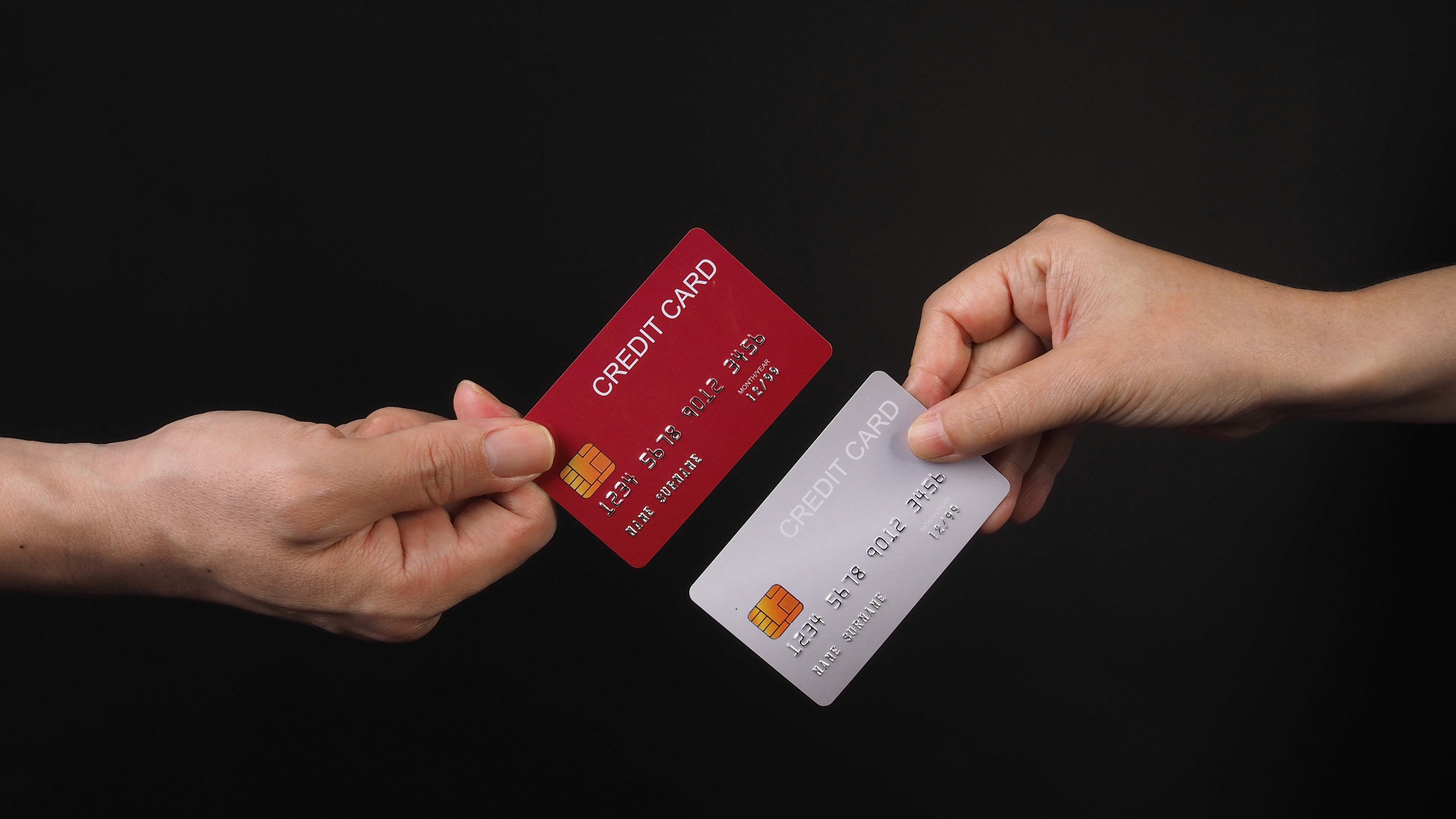If you have multiple credit cards, you may have considered paying one card's bill with another. While this approach seems convenient, it's generally not a viable option. Most card issuers prohibit such transactions, and for good reason: using one credit card to pay off another merely shifts your debt without reducing it.
However, there are indirect methods you can use to manage your credit card payments more effectively. This article will explore alternative approaches for handling your credit card bills when direct card-to-card payments aren't possible.
Can We Pay Credit Card Bill From Another Credit Card?
As mentioned earlier, you can't directly pay off one credit card with another, however, there are indirect methods to achieve this goal. These include balance transfers, cash advances, and e-wallet transactions. It's important to keep in mind that these methods often come with extra costs like fees and higher interest rates.
You must be careful when considering this approach, as it could make your financial situation worse if not done wisely. Before deciding, think about how it might affect your finances in the long run and look into other ways to handle your credit card debt.
How to Pay Credit Card Bill from Another Credit Card?
-
Balance Transfers
One way to pay off a credit card bill is with a balance transfer. This involves moving your existing balance, or a portion of it, to a new credit card with a lower interest rate. This can potentially save you money on interest charges in the long run.
To initiate a balance transfer, you'll need to provide the new credit card issuer with some information about the card you want to transfer the balance. This usually includes the card number, issuing bank, and the current outstanding balance. Once the transfer is complete, the new card issuer will pay off your existing debt. You'll then make your monthly payments on the new card with the lower interest rate.
-
Cash Advances
Some credit card issuers allow cash advances. This means you can withdraw cash up to a certain limit using your credit card at an ATM or a bank that accepts credit card transactions. Once that's done you can use the cash to pay the debt for your credit card.
It's important to be aware of the terms and conditions before using a cash advance, as they typically come with higher interest rates and additional fees compared to regular credit card purchases. These extra charges can quickly add up and make cash advances a costly option.
-
Digital Wallets
Digital wallets offer another method to indirectly pay one credit card bill with another credit card. This option has become increasingly popular in India due to its convenience. You can add funds to these wallets using one credit card and then use the wallet balance to pay bills for other cards.
There are various e-wallet apps available, including third-party options and those provided by banks. The process of loading funds into an e-wallet is typically straightforward, often requiring only your card details and an OTP for authorisation. However, it's important to consider any associated fees or terms before using this method.
Benefits of Paying Credit Card Bill Using Another Credit Card
Using one credit card to pay off another can sometimes offer financial advantages:
-
Earn Rewards: You may accumulate reward points or cashback by using one credit card to pay another.
Avoid Late Fees: This method can help ensure on-time payments, potentially avoiding late fees and protecting your credit score.
Manage Debt: It can be a way to consolidate debts and potentially secure lower interest rates.
Faster Payments: In urgent situations, this approach can provide a quick way to settle outstanding balances.
Disadvantages of Paying Credit Card Bill Using Another Credit Card
Using one credit card to pay off another may seem convenient, but it also comes with some risks that could increase your overall debt.
-
Additional Costs: This approach often involves extra costs like balance transfer or cash advance fees, which add more to the amount you already owe to the credit card issuer.
Chances of Falling in a Debt Trap: If you don't pay off the balance on the new card quickly, you might face higher interest rates, making your debt grow faster.
It's important to carefully consider these potential downsides before using this method to manage your credit card debt.
Closing Thoughts
While paying off a credit card with another offers a temporary solution or potential rewards, it should be a last resort. The additional fees and interest charges can outweigh any benefits.
Explore alternative methods like budgeting, debt consolidation plans, and using responsible financial strategies to manage your credit card debt and improve your financial health in the long run.
Frequently Asked Questions (FAQs)
-
Is it possible to pay a credit card bill using another credit card from the same bank?
Generally, banks don't allow this practice. Most financial institutions prohibit using one credit card to pay off another, even within the same bank. This policy helps prevent accumulating debt and potential fraud.
-
What's the typical timeframe for processing a credit card payment from a different bank?
When paying a credit card bill from another bank, the process usually takes 1-3 business days. Electronic payments are often quicker, while mailed checks may take longer. To ensure timely payment, it's best to initiate the transaction at least 3-5 days before the due date. Keep in mind that processing times can vary between banks and payment methods.
-
When is the best time to pay my credit card bill?
There's a strategy called the 15/3 rule where you can make two payments per billing cycle. This involves paying roughly half of your balance around 15 days before the due date and then the remaining balance three days before. The idea is to potentially keep your credit utilisation ratio lower throughout the billing period.












